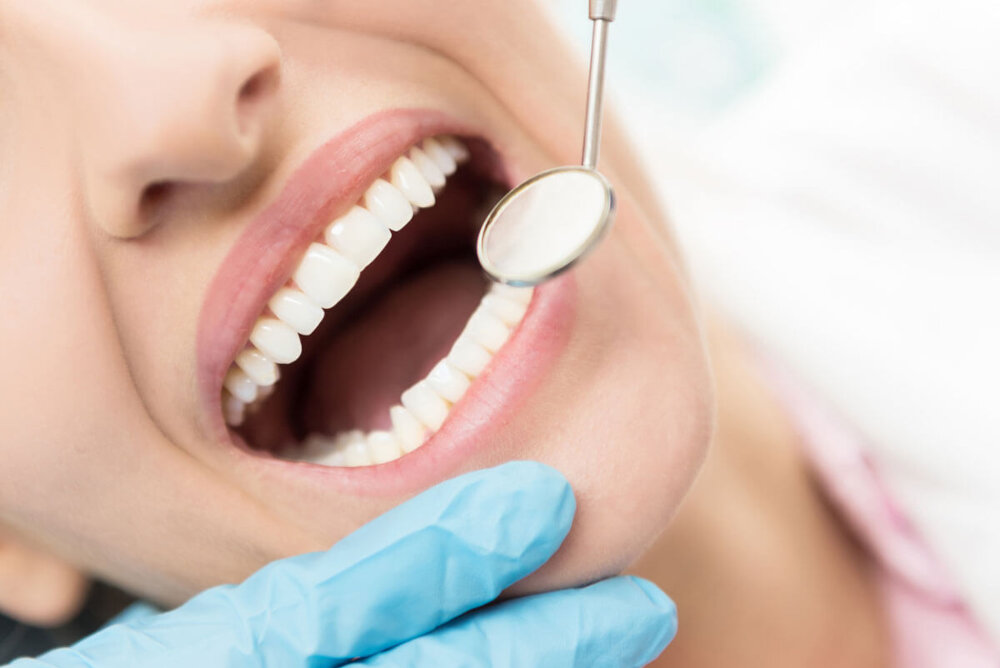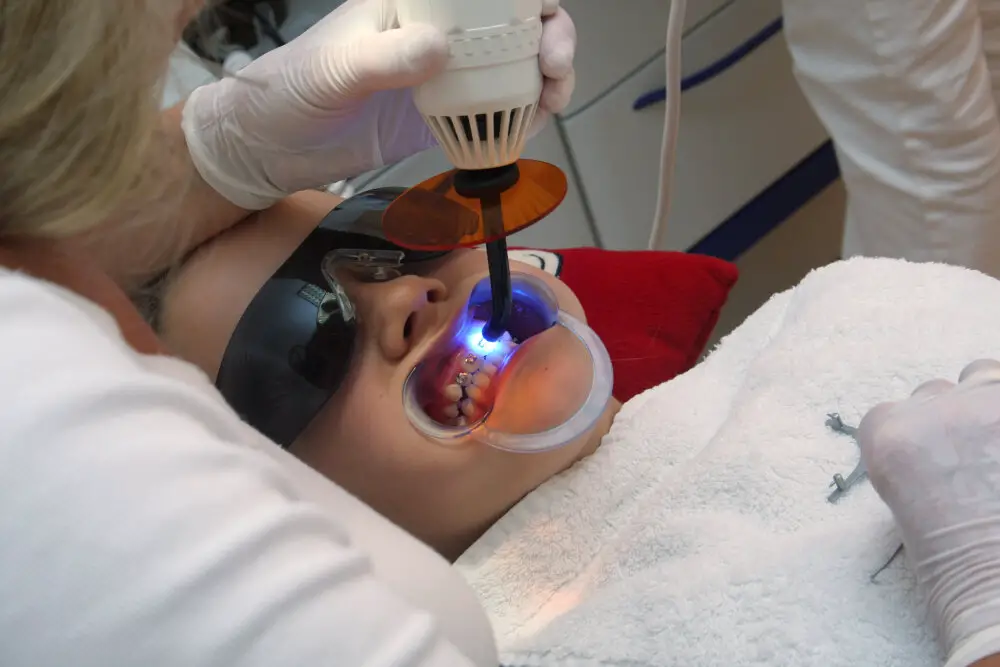Milabu’s Teeth: Uncovering the Truth Behind Common Dental Problems

Milabu’s Teeth: Uncovering the Truth Behind Common Dental Problems is a topic that has been gaining attention in recent years. With the rise of social media influencers and the emphasis on perfect smiles, people have become more aware of their dental health. However, dental problems are not just about aesthetics; they can also affect one’s overall health and well-being. This topic aims to delve deeper into the common dental problems that people face and provide insights into their causes, symptoms, and treatments. The human mouth is a complex system that can face a variety of dental problems. From cavities to gum disease, dental problems can cause pain, discomfort, and even lead to tooth loss. Despite the prevalence of these issues, many people are still unaware of the causes and consequences of dental problems. Through this topic, we hope to educate readers about the importance of maintaining good oral hygiene, the role of diet in dental health, and the significance of regular dental check-ups. By uncovering the truth behind common dental problems, we can help people take better care of their teeth and lead healthier lives.
Milabu is a popular YouTube personality and beauty influencer known for her engaging content on hair, makeup, fashion, and lifestyle. Her channel, Milabu, has amassed over 2.5 million subscribers and counting, making her one of the most watched and beloved YouTubers in the beauty community. With her infectious energy, candid personality, and passion for all things beauty, Milabu has become a go-to source for tips, tricks, and inspiration on everything from everyday makeup looks to special occasion hairstyles. In her latest video, Milabu tackles a topic that affects millions of people worldwide: teeth and common dental problems. From cavities and gum disease to sensitivity and discoloration, Milabu uncovers the truth behind these issues and shares her top tips for maintaining healthy and happy teeth.
Dental health is critical to maintaining overall bodily health, as oral health issues can lead to more severe conditions such as heart disease and stroke. Common dental problems include cavities, gum disease, and tooth decay, which can all result from poor oral hygiene practices such as infrequent brushing and flossing. Additionally, lifestyle factors such as smoking and a diet high in sugar can exacerbate these issues. It is essential to practice good dental hygiene, including regular dental check-ups and cleanings, to prevent and address these common dental problems. By taking care of our teeth and gums, we can maintain a healthy smile and prevent a range of serious health concerns.
The Causes of Tooth Decay

Tooth decay is one of the most common dental problems that people face today. It is caused by the buildup of plaque and bacteria on the teeth, which can lead to the breakdown of the tooth enamel over time. There are several factors that can contribute to tooth decay, including poor oral hygiene, a diet high in sugar and carbohydrates, and a lack of fluoride in the water supply. Poor oral hygiene is one of the most significant causes of tooth decay. When people fail to brush their teeth regularly, plaque and bacteria can build up on the teeth, leading to the breakdown of the enamel. Additionally, people who do not floss regularly may also be at risk of developing tooth decay, as food particles and bacteria can become trapped between the teeth, leading to the formation of cavities. A diet high in sugar and carbohydrates can also contribute to tooth decay, as these substances can feed the bacteria in the mouth, leading to the production of acid that can erode the tooth enamel. Finally, a lack of fluoride in the water supply can also contribute to tooth decay, as fluoride helps to strengthen the tooth enamel and protect against decay.
Tooth decay, also known as dental caries, is a common dental problem that occurs when the hard tissues of the tooth, such as the enamel, dentin, and cementum, are destroyed by acidic substances produced by bacteria in the mouth. This process usually starts with the accumulation of plaque, a sticky film of bacteria and food particles that forms on the teeth and gum line. Plaque can eventually harden into tartar, which can only be removed by a dental professional. As the bacteria in plaque feed on sugars from food and drink, they produce acids that attack the tooth enamel, leading to cavities and other dental problems. If left untreated, tooth decay can cause pain, infection, and even tooth loss. Regular dental check-ups, good oral hygiene habits, and a healthy diet can help prevent tooth decay and maintain good dental health.
Tooth decay, also known as dental caries, is a common dental issue that affects people of all ages. One of the primary causes of tooth decay is sugary and acidic foods and drinks that promote the growth of harmful bacteria in the mouth. Poor oral hygiene practices like irregular brushing and flossing can also contribute to tooth decay. Additionally, genetics play a role in tooth decay susceptibility, as some people are more susceptible to dental caries due to the shape and structure of their teeth. Inadequate saliva production, which helps neutralize harmful acids in the mouth, can also increase the risk of tooth decay. Overall, practicing good oral hygiene and limiting sugary and acidic foods and drinks can help prevent tooth decay and maintain healthy teeth and gums.
Preventing tooth decay is crucial for maintaining a healthy mouth and avoiding common dental problems. Proper dental care and healthy habits are essential for preventing tooth decay. Regular brushing and flossing help to remove plaque and food particles from teeth and gums, reducing the risk of cavities and gum disease. It is important to brush twice a day for at least two minutes and floss at least once a day. A healthy diet, low in sugary and acidic foods, can also help to prevent tooth decay. Drinking water and chewing sugar-free gum after meals can help to stimulate saliva production, which helps to neutralize acids in the mouth. Regular dental check-ups and cleanings are also important for maintaining good oral health and detecting any potential problems early on. By adopting these healthy habits, you can help to prevent tooth decay and enjoy a healthy, beautiful smile for years to come.
The Truth About Teeth Whitening

Teeth whitening has become incredibly popular in recent years, with more and more people seeking ways to achieve the perfect, sparkling white smile. While there are many different options available, from over-the-counter whitening strips to professional dental treatments, it’s important to understand the truth about teeth whitening before jumping in. One of the biggest misconceptions about teeth whitening is that it’s completely safe for everyone. While most people can safely use whitening products without any issues, there are some individuals who may experience negative side effects, such as increased sensitivity or gum irritation. It’s important to talk to your dentist before beginning any whitening treatment to ensure that it’s safe for you and to discuss any potential risks. Another important thing to understand about teeth whitening is that it’s not a permanent solution. Over time, your teeth may begin to yellow or stain again, especially if you continue to consume staining foods or beverages like coffee, tea, or red wine. Additionally, some people may have naturally darker or more yellow teeth, making it more difficult to achieve a bright white smile. It’s important to have realistic expectations when it comes to teeth whitening and to understand that it may require ongoing maintenance to maintain the results. With the right approach and guidance from your dentist, however, you can achieve a brighter, more confident smile that you’ll be proud to show off.
A bright smile is not only aesthetically pleasing, but it also has a significant impact on one’s confidence and overall well-being. A healthy, white smile can make a person appear more attractive, approachable, and trustworthy. It can also boost self-esteem and improve social interactions, leading to better relationships and opportunities. Moreover, maintaining good oral hygiene and a bright smile can prevent dental problems such as tooth decay and gum disease, which can cause pain, discomfort, and even tooth loss. Therefore, it is crucial to invest in regular dental check-ups, brushing and flossing habits, and teeth whitening procedures to achieve and maintain a bright, healthy smile.
Teeth whitening has become increasingly popular, with many people seeking to achieve a brighter, more radiant smile. There are several options available for those looking to whiten their teeth, including at-home and professional treatments. At-home options include over-the-counter whitening strips, gels, and toothpaste, which can be effective but may take longer to achieve desired results. Professional treatments, on the other hand, are typically faster and more effective, and may include in-office treatments such as laser or light therapy, as well as take-home trays and gels prescribed by a dentist. It is important to consult with a dental professional before beginning any teeth whitening treatment to ensure safety and efficacy.
Teeth whitening has become increasingly popular in recent years, but it is important to address the safety concerns and potential risks associated with this cosmetic procedure. One of the main risks of teeth whitening is tooth sensitivity, which can occur during or after treatment. This sensitivity is often temporary, but it can be quite uncomfortable. Another potential risk is damage to the enamel of the teeth, which can occur if the whitening solution is not used properly. In addition, overuse of teeth whitening products can lead to gum irritation and even chemical burns. It is important to consult with a dentist before undergoing any teeth whitening treatment to ensure that it is safe and appropriate for your individual needs.
The Dangers of Gum Disease

Gum disease, also known as periodontal disease, is a common dental problem that affects a large number of people worldwide. It is caused by the buildup of plaque, a sticky film of bacteria that forms on the teeth and gums, and can lead to serious dental problems if left untreated. The early stages of gum disease often go unnoticed, as it starts with inflammation and bleeding of the gums, which can be easily ignored. However, if left untreated, it can progress to more advanced stages, leading to tooth loss, bone damage, and other serious health problems. One of the most dangerous aspects of gum disease is that it can increase the risk of other health problems. Studies have shown that gum disease is associated with a higher risk of heart disease, stroke, diabetes, and respiratory infections. This is because the bacteria in the mouth can enter the bloodstream and spread to other parts of the body, causing inflammation and damage. Therefore, it is important to take gum disease seriously and seek treatment as soon as possible to protect not only your dental health but your overall health as well.
Gum disease, also known as periodontitis, is a common dental problem that affects millions of people worldwide. It is caused by the build-up of bacteria in the mouth, which leads to inflammation and infection of the gum tissue. Symptoms of gum disease include red, swollen, and bleeding gums, as well as bad breath and loose teeth. If left untreated, gum disease can lead to tooth loss and other serious health complications, making it important to seek dental treatment as soon as possible. Preventative measures such as regular brushing and flossing, as well as routine dental check-ups, can help to reduce the risk of developing gum disease and maintain a healthy smile.
Gum disease, also known as periodontal disease, is a common dental problem that affects millions of people around the world. There are several causes of gum disease, including poor oral hygiene, which is the most common cause. When plaque and tartar build up on teeth, it can lead to inflammation and infection of the gums. Genetics also play a role in gum disease, as some people may be more susceptible to it due to inherited factors. Other risk factors for gum disease include smoking, diabetes, hormonal changes, and certain medications. It is important to maintain good oral hygiene habits, such as brushing and flossing regularly, and to visit the dentist regularly to prevent gum disease and other dental problems.
Gum disease, also known as periodontal disease, is a serious condition that can lead to tooth loss and various other health problems. The primary cause of gum disease is the buildup of plaque and tartar on the teeth, which can lead to inflammation and infection of the gums. If left untreated, gum disease can progress to the point where the teeth become loose and fall out. Moreover, research has shown that gum disease is linked to a number of other serious health problems, including heart disease, stroke, and diabetes. Therefore, it is crucial to maintain good oral hygiene habits and visit a dentist regularly to prevent and treat gum disease.
Gum disease is a common dental problem that can lead to tooth decay and even tooth loss. However, it is preventable and treatable through proper dental care and professional treatment. Preventive measures include brushing twice a day with fluoride toothpaste, flossing daily, and regular dental checkups. Professional treatment for gum disease may include scaling and root planing to remove plaque and tartar buildup, antibiotics to eliminate bacteria, and surgery in severe cases. Maintaining good oral hygiene habits and seeking professional treatment as needed is essential for preventing and treating gum disease.
The Link Between Diet and Dental Health

Maintaining good dental health is essential for overall health and well-being. While brushing and flossing are important, diet also plays a significant role in keeping your teeth healthy. The link between diet and dental health is well established, and a balanced diet can help prevent dental problems such as tooth decay and gum disease. Foods high in sugar and carbohydrates can cause tooth decay by providing the perfect environment for bacteria to thrive. On the other hand, a diet rich in fruits and vegetables can help protect your teeth and gums by providing essential nutrients like calcium, vitamin D, and phosphorus. Dairy products like milk and cheese are also great for dental health as they contain calcium and casein, which help strengthen teeth and protect against decay. Additionally, drinking plenty of water is important as it helps rinse away food particles and bacteria that can cause dental problems. By incorporating a balanced diet into your daily routine, you can help keep your teeth and gums healthy and prevent common dental problems.
Maintaining a healthy diet is crucial for dental health. Sugary and acidic foods can lead to the erosion of the enamel, which can cause tooth decay and cavities. A diet that is rich in vitamins and minerals, particularly calcium, can help to strengthen teeth and prevent decay. Additionally, consuming crunchy fruits and vegetables, such as apples and carrots, can help to clean teeth and promote saliva production, which helps to neutralize harmful acids in the mouth. A healthy diet can also help to prevent gum disease, which is often caused by the buildup of plaque and bacteria in the mouth. In conclusion, a healthy diet plays a significant role in maintaining good dental health and preventing common dental problems.
The foods we consume play a vital role in our dental health. Sugary drinks, for instance, can cause tooth decay as the bacteria in our mouth feed on the sugar and produce acid that erodes the enamel. Acidic foods such as citrus fruits and vinegar-based dressings can also weaken the enamel and make it more susceptible to decay. It is essential to limit the consumption of sugary and acidic foods and drinks and maintain a balanced diet with plenty of fresh fruits, vegetables, and calcium-rich foods to promote healthy teeth and gums. Additionally, regular brushing and flossing, along with routine dental checkups, can help prevent dental problems caused by diet.
Maintaining a healthy diet is crucial for optimal dental health. A diet rich in whole foods, such as fruits and vegetables, lean proteins, and whole grains, can help prevent tooth decay and gum disease. It is also important to limit sugary, acidic foods and drinks, as they can erode tooth enamel and contribute to cavities. Drinking plenty of water can also help keep the mouth hydrated and wash away food particles and bacteria. Chewing sugar-free gum after meals can stimulate saliva production, which helps neutralize acid and prevent tooth decay. Following these tips can help promote good oral health and prevent common dental problems.
In the article \Milabu’s Teeth Uncovering the Truth Behind Common Dental Problems,\ the author discusses various dental problems that people commonly experience, such as cavities, gingivitis, and tooth sensitivity. The article goes on to explain the causes of these issues, such as poor oral hygiene, improper brushing and flossing techniques, and certain medical conditions. The author also provides tips and advice on how to prevent and treat these problems, such as regular dental check-ups, proper brushing and flossing, and using fluoride toothpaste. Additionally, the article emphasizes the importance of maintaining good dental health for overall health and well-being. Overall, the article provides valuable information and insights into common dental problems and how to address them.
Maintaining good dental health and regular dental care is vital to overall health and well-being. Neglecting dental hygiene can lead to a variety of common dental problems, including cavities, gum disease, and bad breath. Regular check-ups with a dentist can help detect and prevent these issues before they become more serious. It is also important to practice good oral hygiene habits at home, such as brushing and flossing regularly, to keep teeth and gums healthy. By prioritizing dental health and regular dental care, individuals can improve their overall health and quality of life.
Maintaining good oral hygiene is crucial to prevent common dental problems and achieve a healthy smile. Simple steps like brushing twice a day, flossing daily, and using mouthwash can go a long way in preventing cavities, gum diseases, and bad breath. It is also essential to limit sugary and acidic foods and drinks, quit smoking, and schedule regular dental check-ups. Neglecting oral health can lead to severe dental problems that not only affect the smile but also overall health. By taking proactive measures, readers can ensure a bright, healthy, and confident smile for years to come.
Conclusion

After delving into the world of dental health through the lens of Milabu’s teeth, it is clear that common dental problems are not something that should be taken lightly. From cavities to gum disease, it is essential to prioritize proper oral hygiene and regular dental check-ups to prevent and address these issues. Milabu’s journey has shown us the importance of being proactive in our dental health, as well as the impact that neglecting it can have. By taking the time to educate ourselves on dental health and seeking professional help when needed, we can maintain healthy and beautiful teeth for years to come.







